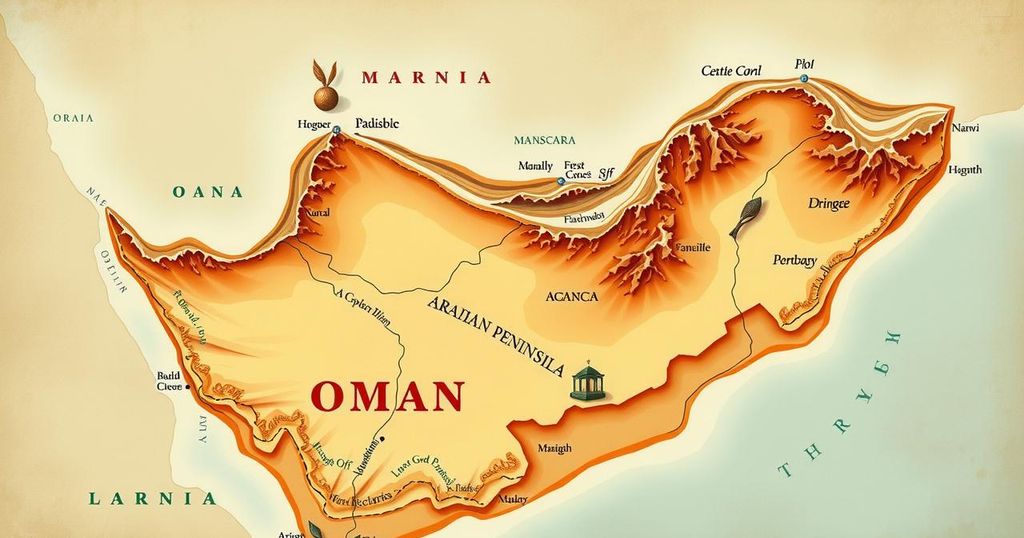Oman has taken a duplicitous role in the Middle East by providing support to Houthi rebels in Yemen, undermining its claims of neutrality. This support poses significant threats to international trade and U.S. interests. The U.S. must confront Oman’s actions through diplomatic pressure, economic sanctions, and increased intelligence efforts to mitigate this threat.
The geopolitical tensions in the Middle East are escalating, requiring urgent attention from the United States regarding its perception of Oman. While Muscat purports to be a neutral player in the conflict, in reality, it has provided refuge and logistical support to Iranian-backed Houthi rebels in Yemen. This support has significant implications for the stability of the region and the interests of global powers, including the United States.
Oman’s facade of neutrality is undermined by its actions, as it has granted sanctuary to prominent Houthi officials, including Mohammed Abdul Salam, allowing them to conduct operations from its territory. This cooperation raises serious concerns about Oman’s role, as it actively enables the Houthis’ military capabilities by facilitating access to weaponry through smuggling corridors. U.S. naval forces have intercepted sophisticated arms shipments believed to be funneled through Oman, further exposing Muscat’s complicity.
The Houthis have become a formidable threat to international shipping lanes, particularly in the Red Sea, due to Oman’s assistance. Since late 2023, they have carried out over 100 attacks on commercial vessels, disrupting essential maritime routes and draining resources for global trade. As a result, the United States has been compelled to respond with military interventions, such as airstrikes targeting Houthi infrastructure, actions that stem from the unchecked growth of Houthi power aided by Omani support.
The implications of Oman’s actions extend beyond Yemen, as their alliance with Iran fortifies a broader regional threat that includes various militias and destabilizing forces. This collaboration has potential repercussions for U.S. interests and allies throughout the Middle East. It is imperative for Washington to recognize and address Oman’s contribution to Iranian aggression, rather than viewing it as a neutral mediator.
U.S. policymakers need to dispense with the misconception of Oman’s neutrality and adopt a proactive stance to diminish its support for the Houthis. Initial measures should involve clear diplomatic pressure, indicating that Oman’s continued facilitation of the Houthis is intolerable. Additionally, economic sanctions should be considered, as Oman relies on military partnerships with the U.S., making these relations contingent on its cessation of support for militant activities.
Intelligence-sharing with allies will also be crucial to intercept arms shipments and curb Oman’s illicit support network. Engaging in a more assertive interdiction strategy around the Gulf of Oman can disrupt weapon flows effectively. Should Oman resist cooperation, sanctions against Omani entities that aid in smuggling should be enforced.
Moreover, enhancing oversight of Oman’s financial systems and scrutinizing transactions linked to Houthi leaders is essential. The U.S. Treasury Department must focus on stopping financial support for the Houthis, which may involve freezing assets connected to these operations. Additionally, there should be a push from Congress for greater accountability in U.S. foreign aid, ensuring military and economic support is conditional upon Oman’s actions regarding the Houthis.
Finally, to mitigate the influence of Oman in the region, the U.S. should collaborate with allies to establish alternative trade routes that reduce dependency on Omani logistical networks. This strategic shift could diminish Oman’s leverage and encourage a cessation of its support for the Houthis, ultimately fostering greater regional stability.
In summary, Oman’s duplicitous role in supporting Houthi rebels poses significant threats to regional stability and U.S. interests. Policymakers must adopt a proactive approach by applying diplomatic, economic, and military pressure to hold Oman accountable for its actions. By reevaluating bilateral relationships and implementing strict oversight measures, the U.S. can significantly weaken the Houthis’ operational capabilities and address the broader challenges posed by Iranian influence in the Middle East.
Original Source: www.jpost.com






